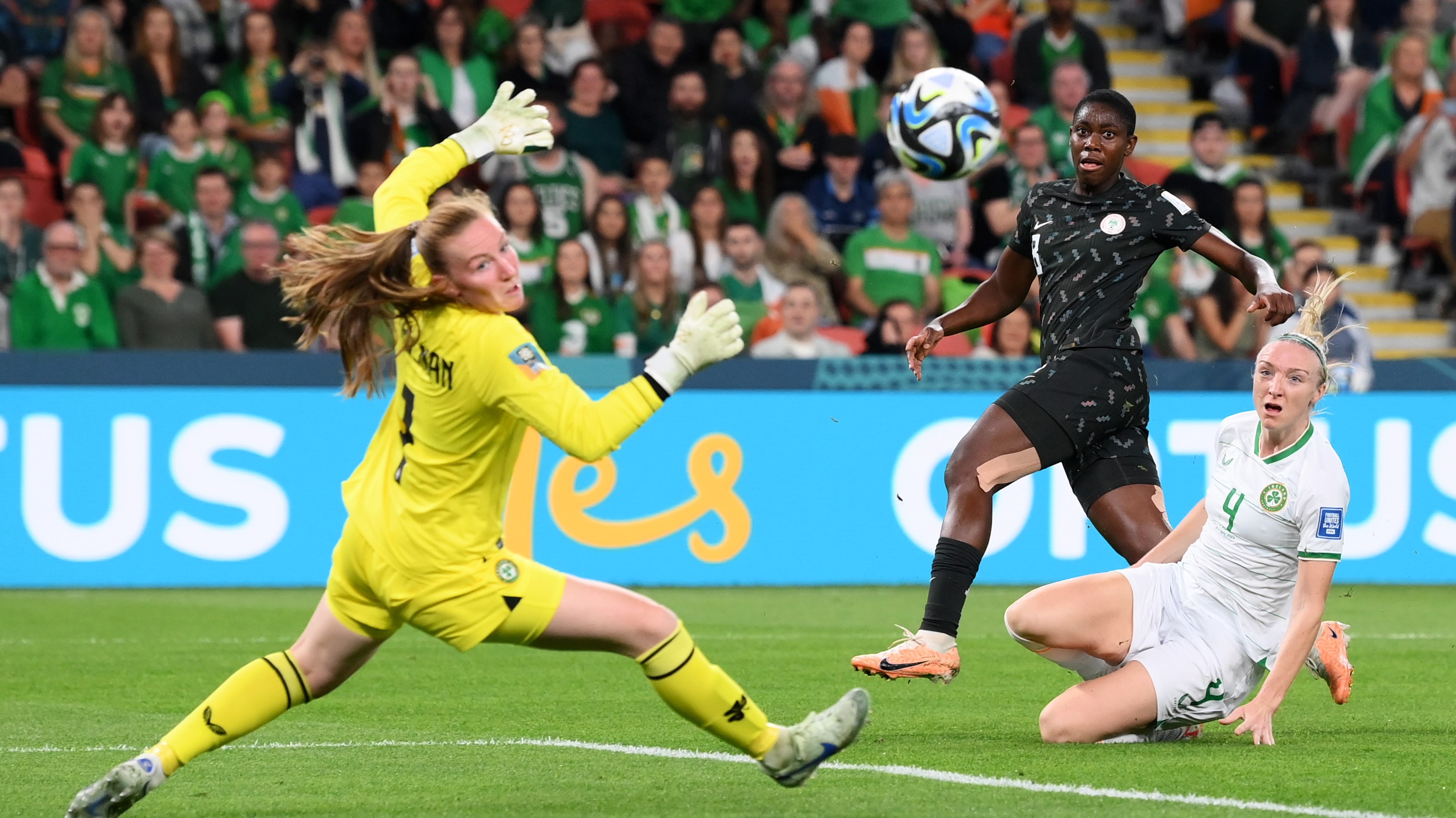Who Introduced Soccer To Nigeria: The Origins Behind Soccer In Nigeria
페이지 정보
작성자 Angelica Amato 작성일24-12-08 08:17관련링크
본문
A massive 67% of Nigerians view Football, which demonstrates how much the sport affects Nigerian culture. Football's journey in Nigeria began over 100 years back, shaping the country's sporting landscape.
Football in Nigeria go back to the early 1900s. British colonisers brought the sport to the country in 1904. The very first recorded football match happened that same year, beginning Nigeria's abundant footballing history of football in nigeria.
By 1950, Football had actually become Nigeria's nationwide game. Its quick rise led to many clubs and associations forming in the early 1900s. This growth enhanced Nigerian pride and assisted influence political flexibility movements.
Nigeria's football legacy now reaches beyond its borders. For many years, the country has actually produced first football association-rate skill, and Nigerian youth teams have actually won the FIFA U-17 World Cup 5 times.
The Super Eagles, Nigeria's national team, are a force in African Football. They typically qualify for significant competitions and make their mark globally.
The British Colonial Introduction of Football to Nigeria
Football got here in Nigeria throughout the British colonial age. It rapidly caught the hearts of residents, marking the start of a rich footballing tradition in the country.
The First Football Match in 1904
The first football match in Nigeria occurred in June 1904. It was in between Hope Waddell Training Institution and the crew of HMS Thistle. The Nigerian group won 3-2, sparking an across the country passion for the sport.

Hope Waddell Training Institution vs HMS Thistle
I hope the Waddell Training Institution in Calabar played an essential function in early Nigerian Football. Their success over HMS Thistle's team showed the skill of Nigerian gamers. This match set the stage for Football's development in the country.
Early Football Club Formation (1906-1932)
After the 1904 match, Football's popularity skyrocketed. From 1906 onwards, early football clubs started forming, and this grassroots movement spread out the sport throughout Nigeria.
The Lagos District Amateur Football Association (LDAFA) was developed in 1932. The LDAFA marked the start of organised Football in Nigeria and led the way for the sport's future success nationally and globally.
Who Introduced Football in Nigeria
Football arrived in Nigeria in the early 20th century. British colonisers brought this precious sport to the West African nation. It quickly became a passion that shaped Nigeria's sporting landscape for generations.
Function of British Colonisers
British colonisers played an essential role in Nigeria's football history of football in nigeria. The first tape-recorded match occurred in June 1904. Hope Waddell Training Institution dealt with the crew of HMS Thistle.
The Nigerian team won 3-2. This triumph marked the start of a rich football legacy in the nation.
Formation of First Football Association
The Lagos District Amateur Football Association (LDAFA) was established in 1932. It prepared for organised Football in Nigeria, which paved the way for the Nigerian Football Association (NFA).
The NFA was founded in 1945. It became the national governing body for Football and supervise its advancement across the country.
Development of Local Football Culture
Football rapidly settled in Nigeria, ending up being the national sport by 1946. Its ease of access and basic rules helped it spread quickly. Regional neighborhoods embraced the game, forming their groups.
This grassroots interest laid the foundation for Nigeria's future success. The nation's enthusiasm for Football grew, causing achievements on the international phase.
"Football became more than just a sport; it evolved into a vital Nigerian culture and identity component."
The British colonisers' introduction of Football triggered a sporting revolution in Nigeria. Football's journey mirrored the country's development from the first match in 1904 to the formation of the NFA in 1945.
Today, Football stays an essential part of nigerian youths life. It's a testimony to the sport's long-lasting appeal and cultural significance in the nation.
The Rise of Nigerian Football Administration
The Nigerian Football Association (NFA) was established in 1945. It played a crucial role in shaping Nigerian Football. In 1949, the NFA formed Nigeria's first nationwide football team.
In 1959, Nigeria signed up with the Confederation of African Football (CAF), which allowed it to participate in continental tournaments. Nigeria likewise ended up being a FIFA member in 1960, signing up with the international football community.
The NFA, later renamed the Nigeria Football Federation (NFF), organised national competitions. They produced the Nigerian Premier League and the Federation Cup, which ended up being the highlights of domestic Football.
Football associations throughout Nigeria prospered under the NFF's assistance. They supported talent and promoted grassroots advancement. Expert Football began in 1990 with sixteen club sides getting involved.
"Our mission is to restore football development at the national governing body level and repackage the league in line with global best practices," specifies the Nigeria National League.
The Premier League was carried out in 2003. This move intended to improve domestic football requirements and attract more spectators and sponsors to national competitions.
Nnamdi Azikiwe's Impact on Nigerian Football
Nnamdi Azikiwe, born in 1904 in Zungeru, Northern Nigeria, left an indelible mark on Nigerian Football. His impact formed the nation's sporting landscape. Azikiwe's enthusiasm for sports came from his varied experiences and education abroad.
Establishment of Zik's Athletic Club
In 1938, Azikiwe established Zik's Athletic Club (ZAC) in Lagos. This club became a symbol of African self-determination. ZAC played a vital role in developing Nigerian Football.
It provided a platform for young athletes to showcase their skills. The club promoted regional talent and cultivated a sense of national pride.
The West African Pilot's Influence
Azikiwe's newspaper, the West African Pilot, played a significant function in popularising Football throughout Nigeria. It extensively covered local matches, group news, and gamer profiles. This media attention helped grow the sport's fan base.
Football as a Tool for Independence
Azikiwe saw Football's potential as a unifying force in the independence movement. He utilized the sport to break down ethnic barriers, and Football became a symbol of Nigerian unity through his advocacy.

Azikiwe's efforts connected Football to nationalism, contributing significantly to the sport's development and shaping its role in contemporary Nigeria.
"Football is not just a game; it's an effective nationwide unity and identity tool."
Nigeria's Journey to International Football Recognition
Nigeria's football journey took a significant leap forward in 1960. The country got FIFA subscription, marking its entry into international Football. This milestone accompanied Nigeria's self-reliance from British rule.
FIFA Membership and First International Match
Nigeria's first global match happened on 8 October 1949. They dealt with Sierra Leone and won 2-0 in a historic encounter. This triumph sparked interest for Football across the nation.
Early Continental Competitions
Nigeria debuted in the Africa Cup of Nations in 1963. The competition, hosted by Ghana, saw Nigeria facing hard challengers. These experiences proved important for the team's development.
Nigeria's determination settled in 1973. They clinched gold at the All-Africa Games, marking their very first significant continental success. 1976, they protected bronze at the Africa Cup of Nations in Ethiopia.
nigeria professional football league's football expertise grew in the 1970s. In 1978, they repeated their bronze medal accomplishment in Ghana. 1980, Nigeria hosted and won its very first Africa Cup of Nations title.
Evolution of Nigerian Football Governance
Nigerian football governance has seen significant changes and obstacles since 1945. The Nigeria football history Federation has actually formed the nation's football landscape, and its journey has actually been complicated and transformative.

From NFA to NFF
The Nigeria Football Association started in 1945. It ended up being the Nigeria Football Federation in 2008. This change intended to modernise the organisation's structure.
In 2019, a bill was passed to identify the NFF officially. It's still awaiting presidential approval.
Advancement of League Systems
The NFF supervises three main leagues: the Nigerian Premier League, Amateur League, and Women's League. These competitors form the backbone of Nigerian Football.
They cultivate skill and promote the sport nationwide. However, challenges like delayed seasons and venue disagreements continue.
National Team Formation
Nigeria's Super Eagles national team was formed in 1949. They've qualified for six FIFA World Cups and won three Africa Cup of Nations titles.
These achievements have actually increased Nigeria's standing in international Football. The Super Eagles' success has put Nigeria on the worldwide football map.
However, Nigerian Football deals with ongoing difficulties. A research study exposed high levels of corruption in football governance. This affects agreement awards and player selection.
These problems highlight the requirement for reform. For the sport to grow, transparency in the Nigerian football administration must enhance.
Conclusion
Nigerian Football's legacy showcases the country's strength and enthusiasm. It started in 1904 with Hope Waddell Training Institute facing HMS Thistle. Since then, Nigeria has ended up being a powerhouse in African Football.
The sport's growth reflects the country's journey from colonial rule to independence. It has promoted a sense of national identity and unity. Nigeria's global football recognition is indisputable.
The Super Eagles' gold medal at the 1996 Atlanta Olympics is a highlight. Their excellent FIFA World Cup performances also stand out. Nigeria has actually gotten approved for six World Cups.
In 1994, Nigeria accomplished its highest FIFA ranking of 5th, strengthening its put on the worldwide phase. Nigerian Football continues to develop with appealing prospects.
Talents like Ahmed Musa and Kelechi Iheanacho shine in leading European leagues. This bodes well for the sport's advancement. The Nigeria Football Federation guides the game's development.
Football's sustaining legacy in Nigeria inspires upcoming generations and promises an interesting future for the sport. The stunning game remains a source of nationwide pride and unity.
FAQ
Who introduced football to Nigeria?
British colonisers brought Football to Nigeria in the early 1900s. The sport quickly became popular and woven into Nigerian culture.
When was the first football match played in Nigeria?
The first documented football match in Nigeria happened in June 1904. Hope Waddell Training Institution played against the HMS Thistle team. The Nigerian team won 3-2.
How did Football become Nigeria's national sport?
Football's basic guidelines and accessibility made it popular in Nigeria. By 1950, it was the national game, motivating pride and liberty motions.
What role did Nnamdi Azikiwe play in Nigerian Football?
Nnamdi Azikiwe, Nigeria's very first President, was vital in establishing Football. He began Zik's Athletic Club in Lagos in 1938, and his paper, the West African Pilot, connected Football to the self-reliance movement.
When did Nigeria join FIFA?
Nigeria ended up being a FIFA member in 1960, the very same year it gained independence. This marked Nigeria's main entry into international football governance.
What is the Nigerian Football Federation?
The Nigerian Football Federation (NFF) governs Football in Nigeria. It developed from the Nigerian Football Association, developed in 1945. The NFF organises nationwide leagues and competitors, including the Premier League and Federation Cup.
What major successes has Nigerian Football accomplished?
Nigeria has actually played in six FIFA World Cups. The Super Eagles national governing body team has won 3 African Cup of Nations. They've likewise won gold in the 2nd All-Africa video games.


 > 고객센터 > 부고함
> 고객센터 > 부고함
 장례협동조합국화원
장례협동조합국화원